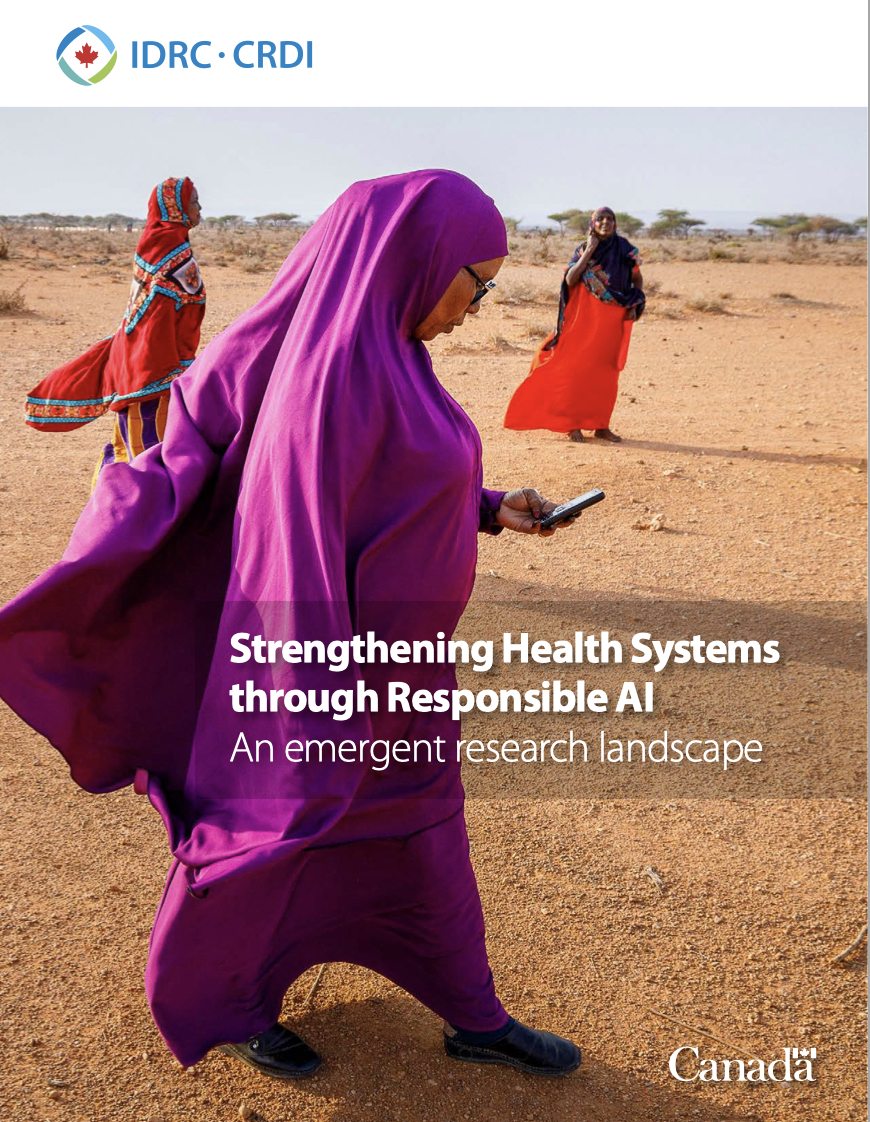Strengthening Health Systems through Responsible AI An emergent research landscape
This paper explores the connection between AI solutions and global health, identifying evidence gaps and opportunities to utilize AI responsibly to combat health inequity and strengthen health systems. AI advances the management of diseases through diagnostics, preventive care, healthcare planning, clinical decision-making, public health surveillance, drug discovery, and health threat responses. However, evidence on AI’s application in global health is lagging. The responsible use of AI must focus on knowledge gaps, ethical implications, and the needs of underserved populations, particularly from a Global South perspective. This proposed research landscape addresses global health trends and issues while establishing prerequisites like regulation, data quality, gender equality, ethics, and equitable Global South-led partnerships. It proposes three entry points for research: health services, community surveillance, and individual health. Evaluating AI development and deployment is critical, and ensuring scaling is a thoughtful choice. Responsible scaling can address vulnerabilities and improve lives, aiming for strong, resilient health systems.
AI can either reduce or worsen health inequities. By strategically advancing research, the Global South can influence the creation of equitable, rights-based AI solutions. Donors and research organizations must prevent AI from perpetuating inequalities. This landscape ignites discussions that lead to action, guiding global research toward achieving the Sustainable Development Goals by 2030.
Discover the initiative and its role in innovating healthcare on a global scale. By reading the discussion paper: Strengthening Health Systems through Responsible AI An emergent research landscape.

